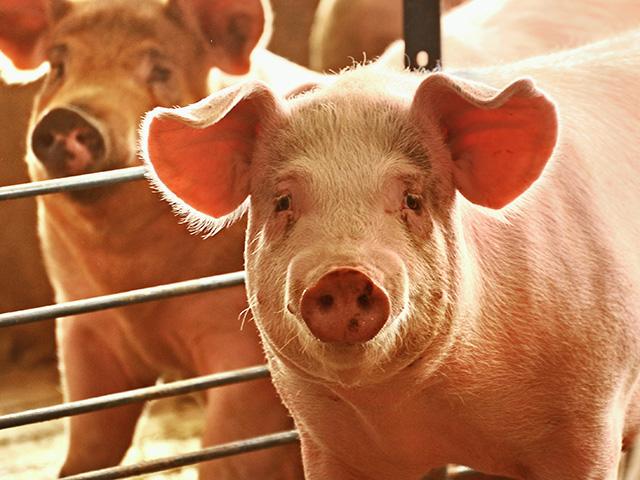JBS Reaches Pork Settlement in Court
Ongoing Class-Action Case Alleges Conspiracy to Fix Pork Prices
OMAHA (DTN) -- JBS has reached a settlement in an ongoing class-action lawsuit that alleges JBS, along with several other large meat companies, conspired to raise the price of pork.
According to the settlement preliminarily approved by the U.S. District Court for the District of Minnesota last week, JBS will pay $24 million in monetary relief and agrees to cooperate with the direct purchaser plaintiffs in the case against other pork companies.
Other defendants in the case include Agri Stats Inc., Clemens Food Group LLC, Hormel Foods Corp., Indiana Packers Corp., JBS USA, Seaboard Foods LLC, Smithfield Foods Inc., Triumph Foods LLC, and Tyson Foods Inc.
In 2018, several plaintiffs alleged in a complaint that the companies entered into a conspiracy from "at least 2009 to the present to fix, raise, maintain and stabilize the price of pork. The principal (but not exclusive) method by which defendants implemented and executed their conspiracy was by coordinating their output and limiting production with the intent and expected result of increasing pork prices in the United States."
The settlement class covers anyone who bought pork directly from JBS or other defendants in the lawsuit, starting on Jan. 1, 2009, and continuing to the date of the settlement.
P[L1] D[0x0] M[300x250] OOP[F] ADUNIT[] T[]
According to the complaint filed in 2018, the plaintiffs alleged a conspiracy among the defendants.
"To effectuate and ensure the stability of their price-fixing agreement, defendants relied on a unique industry data-sharing service known as Agri Stats," the complaint said.
"Agri Stats provided a means for defendants to obtain and monitor critical and competitively sensitive business information regarding each other's production metrics, thereby serving as a central and critical part of defendants' price-fixing scheme, resulting in a remarkably stable and successful anticompetitive cartel."
The plaintiffs pointed to increased concentration in the pork industry as "an ideal zone for collusion."
"Because the industry was dominated by a relative handful of integrators, it was feasible to manipulate price through an agreement among the relatively few dominant players, whose market power greatly simplified the organizational complexity of the price-fixing agreement," the complaint said.
"Further, because none of the largest producers were capable of independently controlling price through their own production, such an agreement was necessary to inflate price."
The lawsuit alleges the industry began showing in 2009, "abnormal price movements. According to aggregate prices published by the USDA, the hog market year average price was at or below $50 every year between 1998 and 2009, before increasing to $76.30 in 2015."
In addition, the lawsuit said pork prices continued to rise into 2018.
"In 2009, 2010, and again in 2013, the pork industry cut production," the lawsuit said.
"The production dip in 2014 reflected the adverse impacts from the deadly pig disease, porcine epidemic diarrhea virus, which took place in the spring and summer of 2014. The decreases in production largely occurred after decreases in pork wholesale prices."
Todd Neeley can be reached at todd.neeley@dtn.com
Follow him on Twitter @toddneeleyDTN
(c) Copyright 2021 DTN, LLC. All rights reserved.




